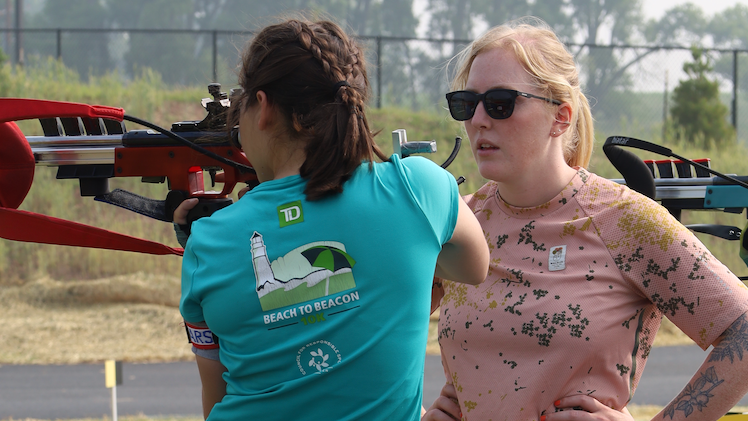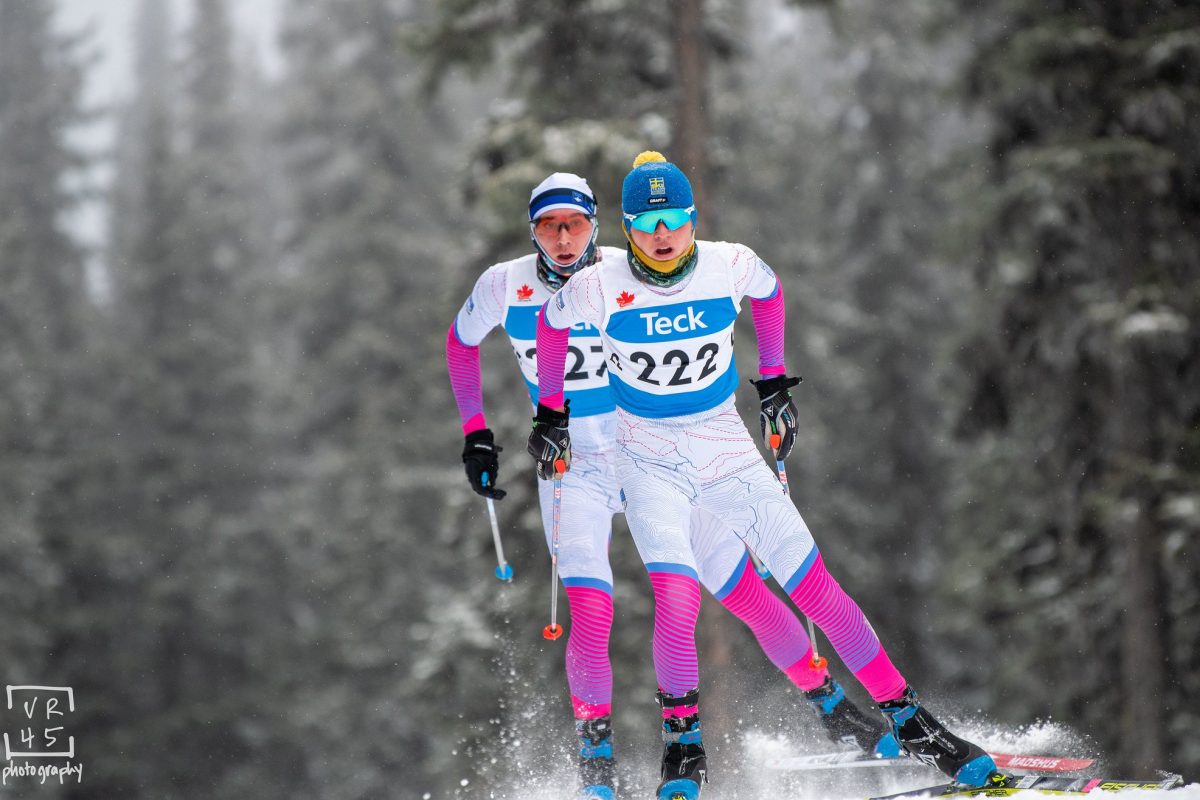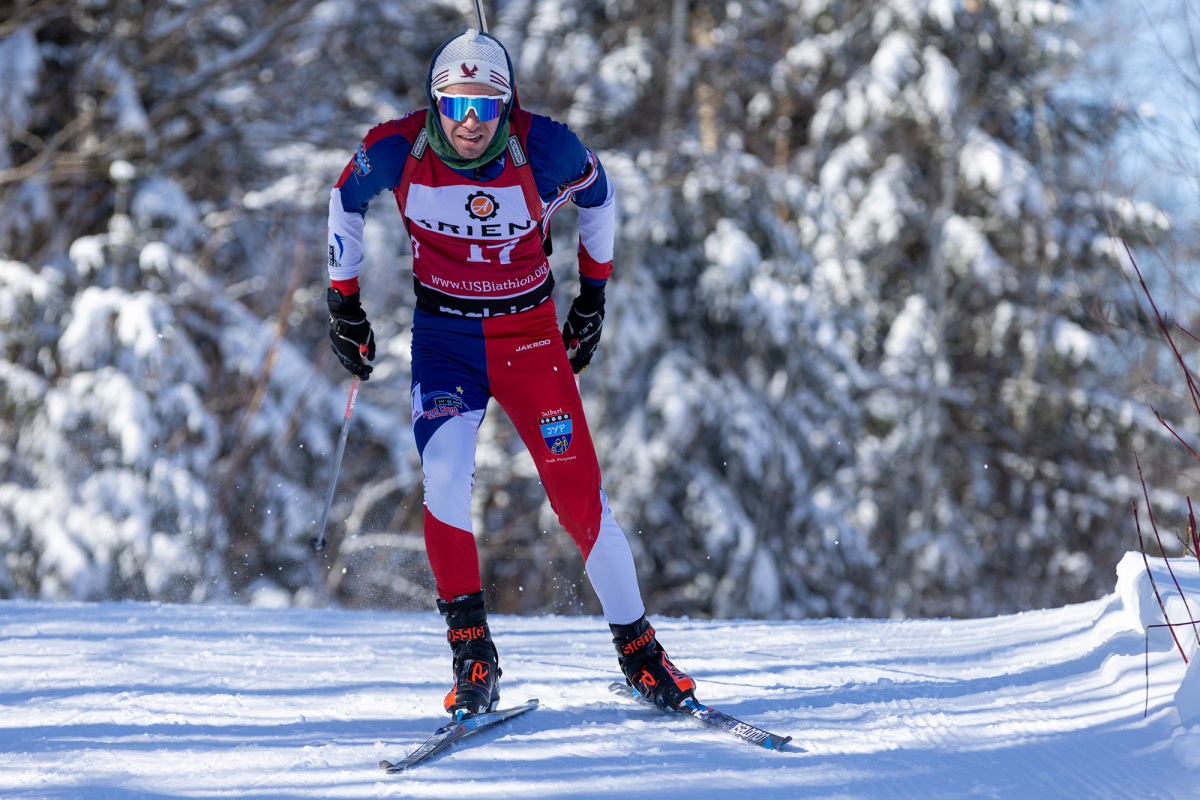
RUHPOLDING, Germany – After placing sixth in a World Cup mixed relay earlier this season, the Canadian team came into today’s race at World Championships with high hopes. But they couldn’t handle the heat – literally, in this case, as temperatures neared 50 and the snow turned to slush.
“Everything in the sun is pretty soft and mushy,” second-leg racer Zina Kocher told FasterSkier after the race. “It’s actually a pretty hard race, not just because of the snow – I can handle the slush – but it’s really hot. I’m dying right now!”
Instead of the top result they had envisioned, the Canadians found themselves in 18th place at the end of the day.
“It was disappointing,” Kocher sighed. “I think we all wanted a top eight.”
That seemed out of reach for the Canadians right from the start. They were already at a disadvantage after losing Brendan Green to a back injury, but they were still not expecting to be sitting in 19th-place after Megan Imrie’s scramble leg.
“Megan shot pretty well, but I haven’t talked to her, and I think she fell,” Kocher said.

Kocher is currently ranked 23rd in the world, and seemed like a sure bet to pull Canada up through the field. But the usually speedy Alberta native wasn’t as fast today, and after one stage had only gained two places.
Then, in standing, disaster struck. Kocher used all three spare rounds and was still left with three black targets. She had to ski three penalty loops, which is practically unheard of in relay racing. After the race, Kocher explained that the harsh 4 p.m. light, which created a stark contrast between bright sun and dark shadows, had been a challenge in the standing stage.
“In zero I actually had a piece of white paper covering my right eye, and yesterday when I was training I thought that by the time I would race I wouldn’t [need] that,” she said. “But I should have worn it because by the time I came in for standing, I had a really hard time distinguishing the white and the black, so I really struggled.”
Kocher dropped to 20th, and was unable to make up any ground on the final two-kilometer loop.
Despite only using a single spare round, Jean Phillipe Le Guellec was also unable to move up. Anchor leg Nathan Smith gained two spots, but the team still landed about ten places lower on the results sheet than it was hoping.
“Being that there’s no wind, and it’s a downhill [into the range], people are shooting really well,” Kocher said. “We just couldn’t get that gap back… I just tried to go for it, but it really didn’t work out at all, I’m very, very disappointed.”
While Kocher’s difficulty on the range is an easy scapegoat for the team’s poor result, ski times were also slow. Imrie had just the 20th-fastest course time of the 27 scramble skiers, while Kocher – who was justifiably tired from skiing nearly an extra half a kilometer in the penalty loop – and Le Guellec were the 16th-fastest skiers on their legs. Smith’s time was the 12th-best among anchors.
Still, in terms of improving, Kocher’s shooting woes are the most straightforward to fix.
“Definitely I’ll be figuring out something, if it’s sunny again, how to deal with that,” she said. “And just remembering that it’s one race, we still have a few more, and all of our individual races.”



